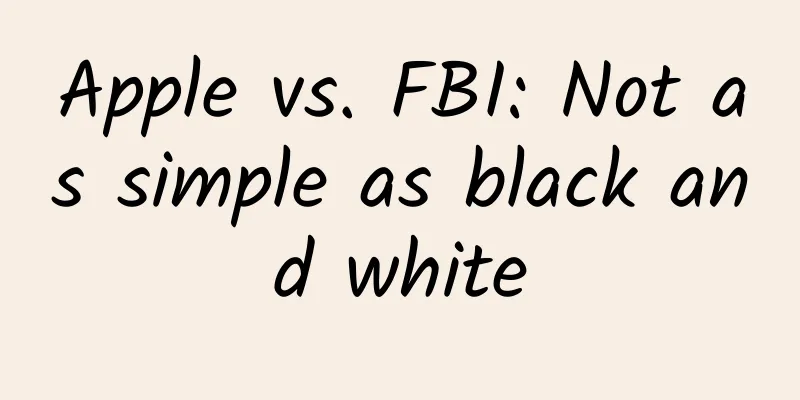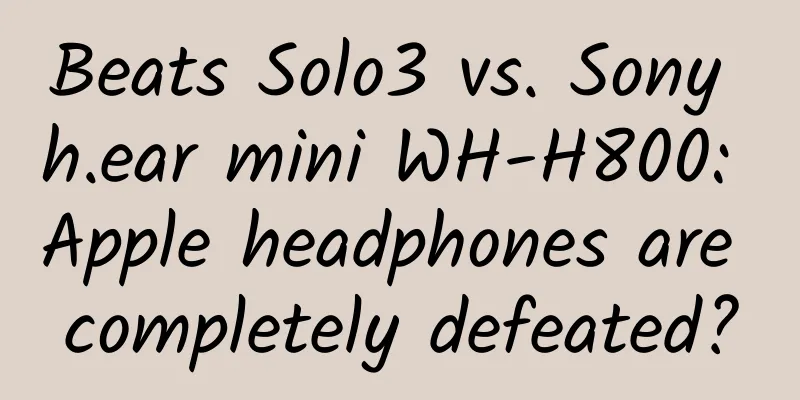Apple vs. FBI: Not as simple as black and white

|
[51CTO Quick Translation] Everyone values security and privacy, except malicious people who hope to cause damage - but finding the ideal level of access control is not easy. Everyone wants to have a secure system solution and needs strong encryption mechanisms to protect their computers and mobile devices from corporate espionage, intrusions, and other malicious activities. However, when terrorists or criminals use encrypted phones, the situation is completely different - in such scenarios, people often support depriving them of their protected permissions. Operating system developers are facing a direct challenge in this area, that is, how to position themselves to actively invade the software they develop. The battle has officially begun between Apple and the Federal Bureau of Investigation (FBI), in which Apple refuses to develop a special version of iOS to help the FBI crack iPhone devices used by terrorists - in fact, the FBI currently has more than a dozen other iPhones that have been confirmed to be used by terrorists. The technical concerns are understandable: any backdoor or other intrusion method will ultimately deliver the content from a secure device to the government (whether for good or bad purposes), but this also means that it may be obtained by criminals or others. As a real-life example, a network device used by a foreign government to access government servers recently had a backdoor. Apple said that this would bring extremely high risks, so it would never provide assistance to the FBI from this perspective. Most people in the technology industry support Apple's decision, but a considerable number of Americans are opposed to it. However, it should be emphasized that some technical personnel have also raised objections. Bill Gates, former chairman of Microsoft, expressed a more specific way of thinking in an interview: I firmly believe that with the right safeguards and guidance, governments will be able to use this approach to curb the growing terrorist activities, which is obviously valuable. Gates also pointed out that the government should not proceed blindly, but the courts and Congress will ultimately discuss and decide on the solution to this problem. However, in the process of discussion, it is best for all parties to realize that "this move will break the existing balance," he emphasized. Gates' views are largely in line with those of Microsoft Corp., where Brad Smith, the software giant's chief legal counsel, wrote that technology companies "should not be forced to build backdoors into their products" but should instead pledge to "provide necessary assistance to law enforcement agencies." He also tweeted that "a broad public discussion of these important issues is necessary." Although both sides of the argument have expressed strong and clear intentions, this is obviously not a simple issue. On the one hand, we all want to ensure the security and privacy of our data. But on the other hand, we don’t want malicious people to enjoy the same security or privacy. This conclusion is not difficult to understand - suppose a terrorist attack has occurred and caused heavy casualties, and a considerable part of the terrorists' communications have been mastered by the FBI, but there may be other important data stored in the encrypted phone. In this case, some people think that technology manufacturers should provide channels to obtain this data, but others think that it is not worth adjusting the existing technical implementation plan, otherwise it may bring risks to every other iPhone. Let's assume another scenario: If an attack has not yet occurred but is almost certain to occur, and the government has obtained an encrypted mobile phone that contains information sufficient to help prevent the attack, should technology companies help them crack the device? This debate is similar to the debate over gun rights in the Second Amendment: Americans want to continue to enjoy the right to bear arms freely, but they also want the government to prevent people with bad intentions from carrying guns. How can we achieve this goal? If a complete gun ban is simply and roughly implemented, criminals who can still obtain guns illegally will become more dangerous. This may be the direction in which the encryption debate is headed: if there is a way to circumvent existing encryption methods, then bad guys may find other ways to hide their data, which means that only ordinary people's personal data is at risk, especially if the master key falls into the hands of criminals. Time, debate, and evolving realities will determine the ultimate outcome of this conflict. We certainly don’t have all the answers, but as Gates said — it’s good to have a discussion. The Apple-FBI encryption fight: It's not black and white [Translated by 51CTO. Please indicate the original translator and source as 51CTO.com when reprinting on partner sites] |
<<: Runtime things (message mechanism)
>>: Hound is now available on iOS, a voice search app with finer word segmentation than Siri
Recommend
How to monetize TikTok?
Recently, Tik Tok has become a battleground for M...
The meat slices cannot exceed 2mm. Is this regulation in Yunnan redundant?
Recently, Yunnan issued the "Yunnan Provinci...
Can your cell phone "eavesdrop" on you? Research shows that your cell phone may be "eavesdropped" on you!
I just finished talking to a friend about somethi...
Dapeng Education-AI Case Improvement Course
Dapeng Education-AI Case Enhancement Course Resou...
Space and surplus coexist, and the Matthew effect in the power battery industry begins to emerge
With national support and promising prospects, an...
How to write an event planning proposal? These elements are essential!
Do you hope that the event will become a hit? Tha...
The launch of Shenzhou 18 was a complete success! One picture will help you understand the Shenzhou series of flight missions
At 20:59 on April 25, the Shenzhou 18 spacecraft ...
Beware! If you see these bugs recently, don’t take photos!
This article was reviewed by Zhang Qikai, Chinese...
Argo AI develops 400-meter lidar, which is expected to be installed on Ford's driverless taxis next year
Autonomous driving technology company Argo AI has...
The chip war has quietly begun. Apart from Huawei, which smart driving company will be more confident?
The competition of new energy vehicles has entere...
Knowledge Planet Product Analysis
Community operation is the most important part of...
Case analysis: How 51talk converts private domain traffic
The 2020 epidemic did not bring any benefits to p...
Is it difficult to convert users into promotion? Catering to the fun point is the key
With the development of information flow advertis...
Nissan's design department changes leadership, where will future design go?
According to foreign media reports, Alfonso Albai...









